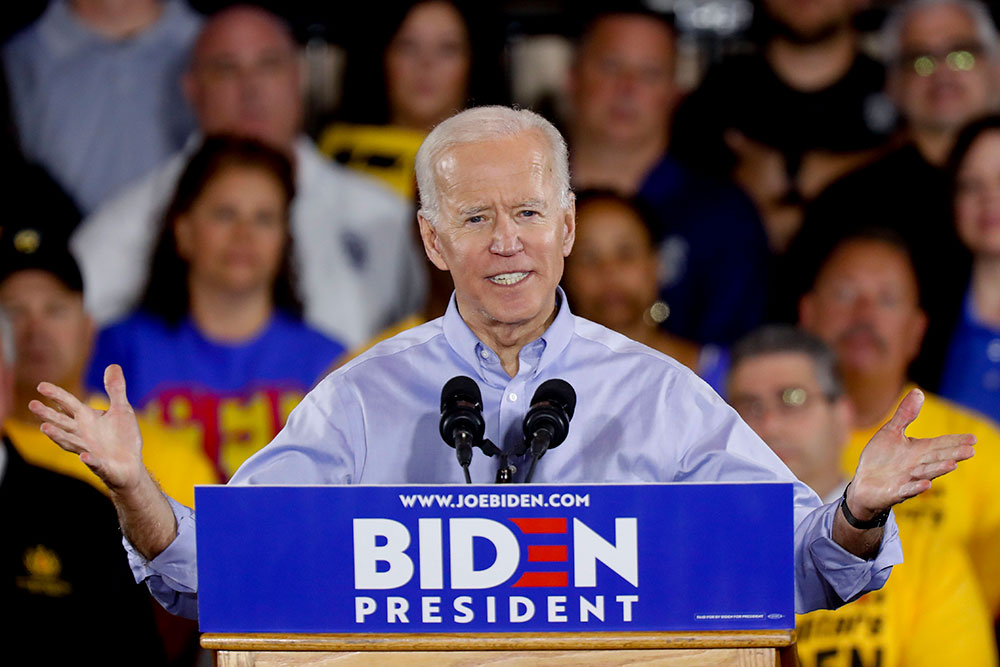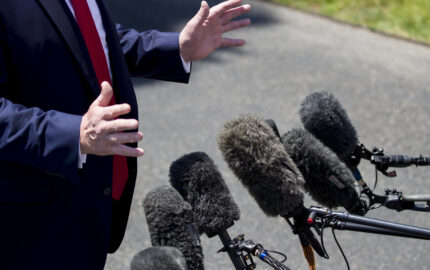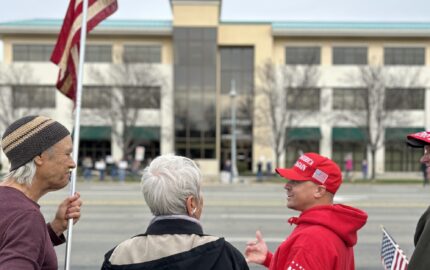The U.S. presidential election may be a year and a half away, but polls are already ranking—and rankling—the still-developing field of 2020 candidates, prompting familiar, biennial pleadings for journalists to resist the siren call of horse-race journalism and keep their attention primarily on the issues.
Multiple studies have found that obsessive coverage of who’s ahead of whom alienates voters. A meta-analysis of data from 32 studies of political campaigns around the world, published last fall, found that horse-race journalism increased political cynicism among voters and undermined their understanding of the issues. When the news is all about the race, the analysis concluded, voters tend to see candidates as caring primarily about winning and acquiring power rather than aspiring to serve the public good. The result is increased negative feelings about all candidates—a discouraging outcome for anyone concerned about today’s historically low trust in government.
What would it take to cover the coming year’s candidates in an issues-centric way?
Simply parroting their proposals for change would not be enough. After all, crime reporters demand evidence when prosecutors claim they’ve nabbed the right culprit. Business reporters interrogate entrepreneurs who claim their startup is the next unicorn. And health reporters don’t accept at face value that a newly touted drug will save lives. They want the lowdown not just on possible cures but also on costs and side effects.
Why should political reporters be any less rigorous in their reporting?
Of course, they shouldn’t, but evidence-based reporting on the campaign trail is exceedingly difficult. A typical portfolio of candidate proposals spans multiple beats. No single reporter has the knowledge—or even a sufficiently broad bench of expert sources—to assess the credibility of candidates’ claims that, for example, the United States could be 100 percent reliant on renewables by 2050, or that immigration is stealing American jobs and posing a security threat, or that the nation could save billions by switching to a single-payer health system. Lacking topical expertise and credible sources, is it any surprise that time-stressed, sleep-deprived reporters on the trail default to a focus on candidates’ jibs and jabs—on who’s on top and who’s not?
The public could be served better, but it will take some cross-disciplinary collaboration among academics and journalists if voters are to get a more satisfying picture of the candidates and their promises. Researchers—including social scientists—are familiar with the peer-reviewed literature that can dispassionately inform policy issues being debated on the political stage. They actually know what it would take for the United States to achieve those variously touted renewable energy goals. They know a lot about agricultural economics and the historical impacts of tariffs and trade policies. And they have read and studied the literature on community impacts of tighter or looser controls on immigration.
The good news is that a growing number of nonpartisan organizations are recruiting policy-neutral academic experts to strengthen journalism. Climate Feedback and Health Feedback use on-call academics to quickly highlight hype or spin in news reports and warn reporters against repeating misstatements of fact. The Pew Research Center maintains a publicly accessible listing of experts prepared to help reporters understand the Center’s well-regarded portfolio of empirical research. And SciLine, the philanthropically supported free service for reporters that I lead, has built a stable of thousands of experts willing to provide neutral, scientific context for reporters on deadline. In August SciLine will go further by hosting a “science essentials” boot camp for political reporters that will take these harried candidate-chasers off the bus for two and a half days and familiarize them with research that can fairly inform key campaign issues.
Other research-based professional organizations and scientific societies should consider how they can make campaign-issue-relevant scholarship more easily available for political reporters, who are only going to be more time stressed in the months ahead. Interviews with researchers—and even two-and-a-half days of boot-camp backgrounders by academic leaders—won’t make reporters experts themselves, of course. But armed with a modicum of unbiased, research-supported findings, campaign reporters will be better prepared to ask probative questions and recognize when candidates misinterpret the facts.
Scientific evidence will never—and should never—be determinative in politics; candidates must weigh cultural, strategic, and other factors as they develop their platforms and priorities. But relevant facts should at least be at the table. And with more than a year to go, there is still time to expand today’s array of rapid-response, research-based resources for reporters, who play such an important role in our democracy. We owe them the tools not only to help voters know who’s in front, but to help them decide who actually belongs there.
Multiple studies have found that obsessive coverage of who’s ahead of whom alienates voters. A meta-analysis of data from 32 studies of political campaigns around the world, published last fall, found that horse-race journalism increased political cynicism among voters and undermined their understanding of the issues. When the news is all about the race, the analysis concluded, voters tend to see candidates as caring primarily about winning and acquiring power rather than aspiring to serve the public good. The result is increased negative feelings about all candidates—a discouraging outcome for anyone concerned about today’s historically low trust in government.
What would it take to cover the coming year’s candidates in an issues-centric way?
Simply parroting their proposals for change would not be enough. After all, crime reporters demand evidence when prosecutors claim they’ve nabbed the right culprit. Business reporters interrogate entrepreneurs who claim their startup is the next unicorn. And health reporters don’t accept at face value that a newly touted drug will save lives. They want the lowdown not just on possible cures but also on costs and side effects.
Why should political reporters be any less rigorous in their reporting?
Of course, they shouldn’t, but evidence-based reporting on the campaign trail is exceedingly difficult. A typical portfolio of candidate proposals spans multiple beats. No single reporter has the knowledge—or even a sufficiently broad bench of expert sources—to assess the credibility of candidates’ claims that, for example, the United States could be 100 percent reliant on renewables by 2050, or that immigration is stealing American jobs and posing a security threat, or that the nation could save billions by switching to a single-payer health system. Lacking topical expertise and credible sources, is it any surprise that time-stressed, sleep-deprived reporters on the trail default to a focus on candidates’ jibs and jabs—on who’s on top and who’s not?
The public could be served better, but it will take some cross-disciplinary collaboration among academics and journalists if voters are to get a more satisfying picture of the candidates and their promises. Researchers—including social scientists—are familiar with the peer-reviewed literature that can dispassionately inform policy issues being debated on the political stage. They actually know what it would take for the United States to achieve those variously touted renewable energy goals. They know a lot about agricultural economics and the historical impacts of tariffs and trade policies. And they have read and studied the literature on community impacts of tighter or looser controls on immigration.
The good news is that a growing number of nonpartisan organizations are recruiting policy-neutral academic experts to strengthen journalism. Climate Feedback and Health Feedback use on-call academics to quickly highlight hype or spin in news reports and warn reporters against repeating misstatements of fact. The Pew Research Center maintains a publicly accessible listing of experts prepared to help reporters understand the Center’s well-regarded portfolio of empirical research. And SciLine, the philanthropically supported free service for reporters that I lead, has built a stable of thousands of experts willing to provide neutral, scientific context for reporters on deadline. In August SciLine will go further by hosting a “science essentials” boot camp for political reporters that will take these harried candidate-chasers off the bus for two and a half days and familiarize them with research that can fairly inform key campaign issues.
Other research-based professional organizations and scientific societies should consider how they can make campaign-issue-relevant scholarship more easily available for political reporters, who are only going to be more time stressed in the months ahead. Interviews with researchers—and even two-and-a-half days of boot-camp backgrounders by academic leaders—won’t make reporters experts themselves, of course. But armed with a modicum of unbiased, research-supported findings, campaign reporters will be better prepared to ask probative questions and recognize when candidates misinterpret the facts.
Scientific evidence will never—and should never—be determinative in politics; candidates must weigh cultural, strategic, and other factors as they develop their platforms and priorities. But relevant facts should at least be at the table. And with more than a year to go, there is still time to expand today’s array of rapid-response, research-based resources for reporters, who play such an important role in our democracy. We owe them the tools not only to help voters know who’s in front, but to help them decide who actually belongs there.



